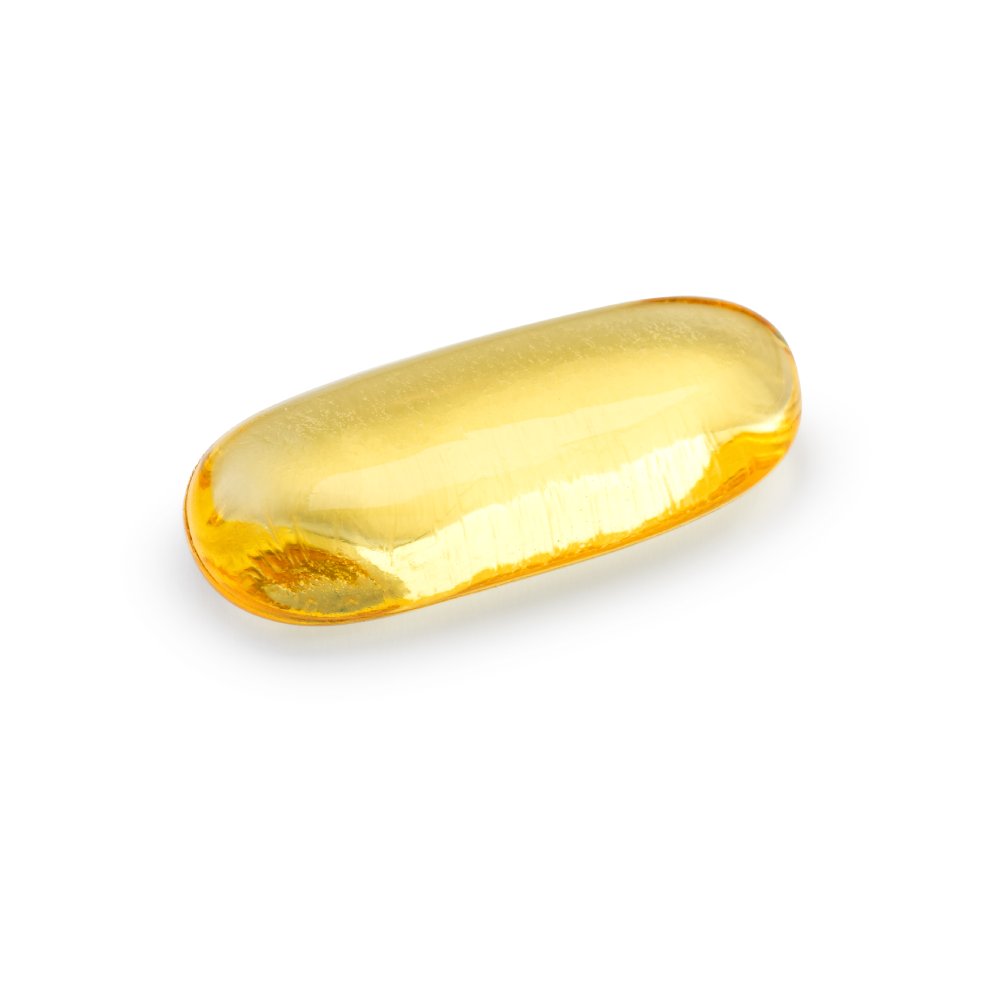
VITBLISS
OMEGA-3 Fish Oil
OMEGA-3 fatty acids are polyunsaturated fatty acids. The best known are alpha-linolenic acid (ALA) and the fish fatty acids eicosapentaenoic acid (EPA) and docosahexaenoic acid (DHA). OMEGA-3 fatty acids protect against cardiovascular disease and fit into a healthy diet. ALA is found in vegetable oils, especially linseed oil. It is also found in some meat and green leafy vegetables. EPA and DHA are mainly found in fish and crustaceans and shellfish.
Benefits

Anti-oxidative effect (Vitamin E)

OMEGA-3 Fish Oil
Why is OMEGA-3 important?
OMEGA-3 Fish Oil
Where can we get OMEGA-3 naturally?


OMEGA-3 Fish Oil
Who might benefit from OMEGA-3 Fish Oil and why?
Our OMEGA-3 Fish Oil
More about the ingredients of OMEGA-3 Fish Oil
Below is some important information about OMEGA-3 Fish Oil capsules from VITBLISS
-
Contains per capsule/tablet:
-
Excipients
-
Allergens
-
Vegetarian information
Advice for use:
Content of one cup corresponds to the dose of one day. Consult an expert before use in case of pregnancy, lactation, illness or use of medication. Preferably during or after a meal, unless otherwise advised. Do not exceed the recommended daily dose. This product is not suitable for persons under the age of 18. Discontinue use and consult a doctor if side effects occur. A varied, balanced diet and a healthy lifestyle are important. Food supplements are not a substitute for a varied diet.
Storage advice:
Store in a dry, dark place and at room temperature (15-25°C).
Keep out of reach of children.



